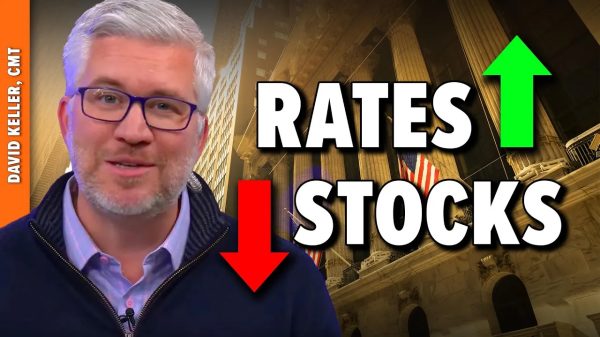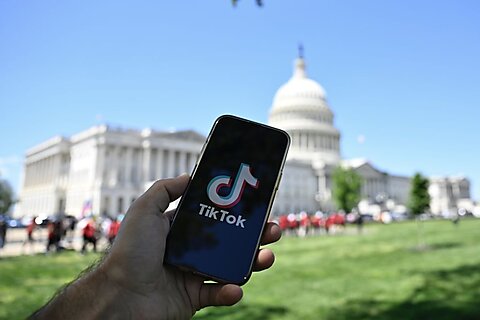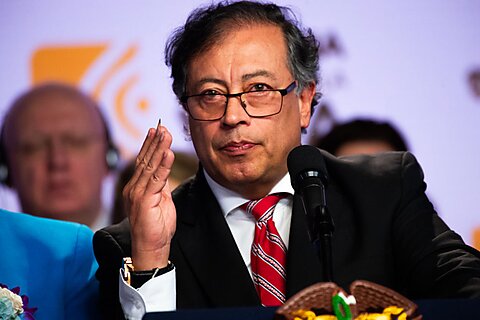Daniel Raisbeck
In June of 2022, a slight majority of Colombian voters elected Gustavo Petro as president. To say that they ignored numerous warning signs would be an understatement.
Petro began his public life in the late 1970’s as a member of the M‑19, the bloodthirsty urban guerrilla group that—among its many acts of terrorism— stormed the Ministry of Justice in November of 1985, held its magistrates and hundreds of employees as hostages, and ultimately caused the violent death of 111 people.
In 1994, a mere two years after the M‑19’s final official amnesty, which coincided broadly with the introduction of a new constitution in 1991, Petro—then a congressman—invited Hugo Chávez to Bogota, where he hosted him for over a week. At the time, Chávez himself had been recently amnestied, having been sentenced for leading a failed and bloody coup attempt in Caracas in 1992.
Reflecting on his time with Chávez in the Colombian capital, Petro said: “We found an ideological understanding in the fight against corruption and in the Bolivarian discourse.”
Chávez became president of Venezuela in 1999. By 2003, Petro was boasting to a Colombian magazine, which described him as “one of Chávez’s closest advisors on the new model being implemented in Venezuela,” about the country’s change of tack. “We are in a transitional stage,” Petro said, “from a neoliberal model to one that I would call ‘neo‐populism.’”
Eventually, under Chávez’s price and currency controls, food and basic goods in Venezuela became scarce. So too did Petro’s public statements about the Chavista model. “Neo‐populism,” it turned out, had been a euphemism for old‐fashioned socialism. And Petro tried to distance himself from the consequences that he had helped bring about. While running for president in March of 2010, he tweeted:
“We are socialists of the 21st century and Chávez is a 20th century socialist. I don’t expropriate the workers’ property.”
But Petro later deleted said tweet.
When Chávez died in 2013, Petro, who was then the mayor of Bogota, attended his funeral in Caracas. At the time, Petro claimed that Chávez had been “a great Latin American leader.” On Twitter, he posted a photograph of a supermarket shelf full of goods, adding a denial that food was scarce in Venezuela, as it had already been for some time.
During his stay in Caracas, Petro spoke to Telesur, Venezuela’s state‐run media agency, of his initial encounter with Chávez. According to the Bogota mayoralty’s website, Petro said that, in 1994, he and Chávez had sworn to carry out “a Bolivarian integration” of Latin America. “We pledged to fight for that goal,” he said.
Nonetheless, in the run‐up to the 2018 presidential election, which Petro lost, he once again tried to downplay his close ties to Chavismo. Petro continually claimed that, since he opposed all future oil exploration in Colombia, his economic policies had nothing to do with Chávez’s model for Venezuela, which was oil‐dependent.
Petro’s radical, even apocalyptic, environmentalist rhetoric helped him to win the 2022 election. His not too subtle pivot from traditional statist to climate change alarmist went largely unopposed. Petro’s political rivals, the news media, and center‐left opinion leaders meekly allowed him to change the axis of political debate.
It fell to a foreign journalist, Mexico’s Jorge Ramos, to provide the only memorable exception. In a 2018 CNN interview, Ramos asked Petro whether he thought that Chávez had been a dictator. After eluding the question for around 40 seconds, Petro said: “I think that international politics is sharply divided by the issue of climate change.” The following exchange ensued:
Ramos: “No, no, no. Was Hugo Chávez a dictator or not, Mr. Petro? […] We can talk afterwards about climate change if you would like.”
Petro: “Hugo Chávez was elected by the people several times.”
Ramos: “Do you think that Chávez was a dictator?”
Petro: “I think that there was no doubt about his elections according to the information I have.”
Ramos: “But you have not answered me whether Chávez was a dictator or not. [Ramos proceeds to quote Petro’s 2013 tweet praising Chávez as a great leader] A great Latin American leader? He had political prisoners, caused many deaths, censored and controlled all news media. Is that a great political leader?”
Petro: “I think that Chávez died and, since his death, a part of Venezuela admires him and another part does not admire him.”
Ramos: “But you, Mr. Petro […] Many Colombians fear that you will do the same.”
Petro: “I cannot do the same for two fundamental reasons. First, because what I propose for Colombia is to separate the economy from oil and coal….”
Ramos: “But you have not wanted to answer me. It is very simple. For you, was Chávez a dictator or not?”
Petro: “I think that he was elected by the people.”
Petro eventually admitted—with an evident lack of conviction in his body language—that the Venezuelan regime had become authoritarian, but only under Chávez’s successor, Nicolás Maduro, and that Cuba’s statist economy harmed democracy. But Ramos’s pushback had exposed his rhetorical tactic: to claim that Venezuela’s economic and humanitarian collapse was not due to Chávez’s socialist policies, which Petro had celebrated and promoted, but rather to the primacy of the country’s oil industry.
Hence, Petro claimed that his center‐right opponents, who did not intend to shut down oil exploration and production in the country, were the true proponents of Chavismo in Colombia. Not Petro himself, the one Colombian politician who had helped to bolster Chávez’s power in Venezuela.
Petro got away with his sophistry. Also with his claim that, despite earlier statements about the supposed need to change the constitution, he did not plan to summon a constitutional assembly if elected, as Chávez had done in Venezuela in 1999. Thus, leading politicians and opinion leaders of the center‐left allowed themselves to be convinced that Petro was a democrat and, as such, represented no menace to Colombia’s republican institutions. In other words, Petro was no Chávez. Nor was Colombia, South America’s longest‐running democratic republic, as institutionally weak as Venezuela had been when Chávez took over.
A pillar of this theory was the formidable opposition that Petro could face from Congress, where Petro’s party did not hold a majority. But this overlooked the longstanding Colombian tradition of a pro‐government Congress, whose members are always susceptible to the patronage of a powerful presidency.
Indeed, as Petro was preparing for his inauguration, he formed a coalition not only with the center‐left Green Party. It also came to include the Liberal Party, a member of the Socialist International since the 1990’s, the nominally center‐right Party of National Unity, and even the Conservative Party. The formidable opposition theory collapsed even before Petro was sworn into office.
By November of 2022, Petro’s coalition had already approved a tax law that raised rates on formal sector employees and businesses, reinstated a national wealth tax, introduced a sugar tax (which falls most heavily upon the poorest in society), and forbade mining companies from deducting royalty payments from their income taxes. Petro’s “tax reform” really meant hefty tax increases (although this was already the norm in Colombia well before Petro came to power).
More recently Petro has garnered support from the Liberal Party and from Conservative senators for his sabotage of the private pension system. Petro aims to end workers’ ability to choose between the private and public pension alternatives for their mandatory retirement savings; the private system consists of individual retirement accounts, whereas the public version is an unsustainable, pay‐as‐you‐go system that is subsidized through the national budget. Workers in the formal sector are currently free to choose between both models. Petro seeks to force all workers into the state‐run system, leaving private funds as a voluntary alternative for those earning over three times the minimum wage.
Liberal and Conservative politicians are supporting Petro’s statist pension scheme despite their parties’ official exit from the government. Petro’s original, “National Agreement” government only lasted until the first half of of 2023, when it dawned on the political class that Petro truly intended—as he had said all along— to uproot private sector involvement in the healthcare sector.
Last March, Congress refused to approve Petro’s bid to expand state control of the healthcare system at the expense of private health insurance companies. Petro’s government responded by taking control of the administration of one of the largest private insurance companies, which manages the health funds of 5.7 million members. Petro also announced that it was time to summon an extralegal constitutional assembly since Congress could not “rise to the challenge” of implementing his agenda in full.
When it came to healthcare, the opposition finally became formidable. And Petro moved to make it futile. Analysts had failed to consider that, when push came to shove, Petro did not intend to respect constitutional protocols.
While the current constitution allows the creation of a new constitutional assembly, it requires both chambers of Congress to vote in favor by a majority, followed by the approval of the Constitutional Court and a majority of voters in a plebiscite, after which an election to choose the assembly members must take place. But Petro says that none of these requirements are necessary to change the constitution.
Petro argues that the “constituted” power that emerged in 1991 has been corrupted, while the “constituent” power is “the people,” which he claims to represent. “The constituent power is not summoned,” he said in an interview. “It is the people, which summons itself to decide the country’s fundamental questions. That is the constituent power.”
Petro has hinted that “the people” will express their support for a new constitution through a series of cabildos or town hall meetings that the government will summon across the country.
He thus claims that he can bypass Congress, the courts, and the need for a legal plebiscite to usher in a new constitution. Its pillars, Petro says, should include “the struggle against climate change” and “the decarbonization of the economy.” This implies a constitutional mandate for Petro’s ongoing war against Colombia’s hydrocarbon industry. Petro’s constitution also would include “a monetary policy that prioritizes employment and production.” That is, a takeover of the nominally independent central bank.
Petro’s attempt to create a new, statist constitution is reminiscent of Hugo Chávez’s own methods, replicated by Latin America’s “21st Century Socialists” Rafael Correa in Ecuador and Evo Morales in Bolivia. Like Petro, who implies that Colombia’s 1991 constitution is obsolete, Chávez affirmed that the Venezuelan constitution was “moribund” when he was sworn in as president.
But even Chávez’s opponents admitted that, in 1999, his constitutional convention “began as a democratic process that in its origins did not involve the rupture of the previous political regime.” Petro, on the other hand, is attempting a full rupture with the established order. He aims to bypass all existing checks and balances to his power.
Petro’s plan is more akin to Nicolás Maduro’s spurious constitutional assembly of 2017, which nullified the power of the National Assembly, where the opposition held a majority since its victory in the election of December, 2015. In that sense, the commentators who still claim that Petro is no Chávez are correct, albeit for none of the reasons they put forth (such as the strength of Colombian institutions).
Rather, Petro’s contempt for the rule of law is arguably greater than that of Chávez during the initial stages of his rule. Then again, whereas Chávez sought to conceal his true intentions during his campaign for the presidency in 1998, Petro campaigned while offering Chavista recipes openly. There were, for instance, his threat to expropriate specific companies, his ambiguity on his intention to change the constitution, and his defense of Marxist doctrine, such as the labor theory of value.
In 2022, a small majority of Colombian voters acted against their better judgment and allowed Petro to hold power. A large majority is now firmly opposed to his government. The question is whether the republic itself will withstand Petro’s imminent constitutional onslaught.
























